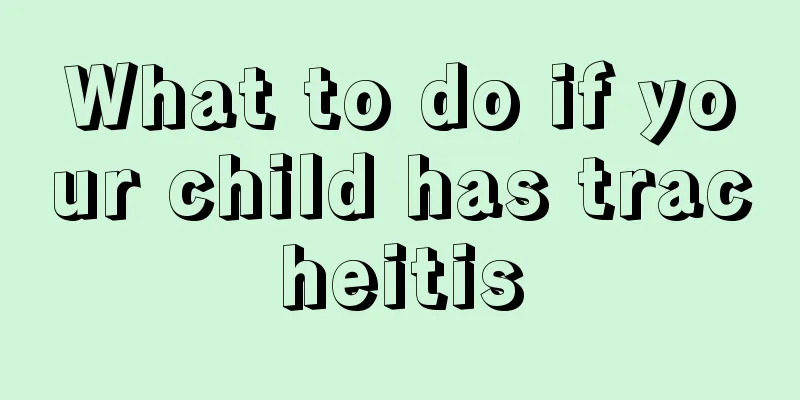How to prevent newborns from choking on milk

|
For newborns, the best nutrition comes from mother's milk, which is incomparable to any other food. It contains all the nutrients needed by newborns. Drinking breast milk will help newborns grow healthier. However, some mothers have no experience in feeding their babies and find that their newborns have the problem of choking on milk. So how to prevent newborns from choking on milk_How to prevent newborns from choking on milk_How to prevent newborns from choking on milk? Expectant mothers should pay more attention to feeding posture. 1. Grasp the timing of breastfeeding When your baby is very hungry, don't rush to feed him, as he may choke if he feeds too quickly. If your baby is full, don't force him to continue feeding. Don't feed him when he is crying, laughing, or has mood swings. 2. The feeding posture should be correct Regardless of the feeding method, the baby should never be allowed to lie flat. It is best to let him lie in a reclining position to prevent air from entering the mouth and causing choking. When breastfeeding, it is best to keep the baby's upper body at an angle of 30 to 45 degrees. When feeding with milk, it is recommended to use a sloped position, raise the bottom of the bottle appropriately, and make sure the bottle is higher than the nipple. 3. Control the speed of feeding If you are feeding the baby artificially, the bottle nipple should not be too large, so that the milk can flow into the baby's mouth in drops to prevent choking. If the mother is breastfeeding, she can press the areola with her fingers when there is a lot of milk to make the milk flow out slowly. 4. Pay attention when feeding When breastfeeding, prevent the nipple from blocking the baby's mouth and nose and causing suffocation. Therefore, mothers should always pay attention to the baby's complexion when breastfeeding. If they find that the baby is spitting up milk or the area around the mouth and nose is turning blue, they should stop breastfeeding in time. Special attention should be paid to premature babies or babies who have experienced choking. 5. Expel gas from your baby’s stomach After feeding, hold your baby upright on your shoulder and pat their back to help them pass gas. Stop when you hear a burp and then place them in their crib. The head of the crib should be 15 degrees high. First, let the baby lie on his side for about half an hour to make sure there is no risk of choking, and then let the baby lie flat to rest. |
<<: How to observe neonatal jaundice
>>: Is silicone bottle good for newborns?
Recommend
What to do if teenagers have trouble sleeping?
Teenagers are in the period of growing and studyi...
How to cultivate children's imagination
A child’s imagination is very important, even mor...
Symptoms of calcium deficiency in infants and young children
Some babies may be malnourished because they were...
Diagnosis and classification of lead poisoning in children
Because children are young and often cannot take ...
What is the effect of lumbar puncture on the growth of newborns?
Lumbar puncture is a common medical procedure tha...
Will children have a fever when they have teeth?
Children start to change their teeth when they ar...
Can a 7 month old premature baby survive?
The survival rate of seven-month-old premature ba...
What are the dangers of bedwetting in children
When children reach a certain age, they will no l...
Is it normal for a baby's anterior fontanelle to be sunken?
We all know that there is a soft area on the top ...
Symptoms of choking in children
Eating is a job that requires special meticulousn...
What to do if your child has pigmentation?
Many children have recently developed pigmentatio...
Causes of fever in children's hands and feet
Relatively speaking, children's constitution ...
How to take care of a baby’s blocked nose?
It is easy for babies to have nasal congestion wh...
What to do if a three-year-old child coughs
Three-year-old children have weaker resistance an...
How to regulate the stomach of a 2-month-old baby
Everyone knows that the baby's physical devel...









